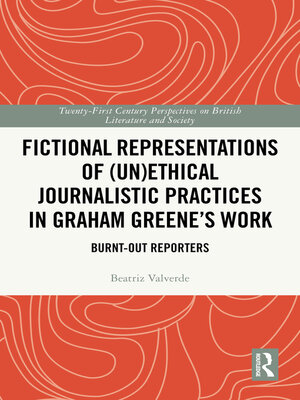Fictional Representations of (Un)ethical Journalistic Practices in Graham Greene's Work
ebook ∣ Burnt-Out Reporters · 21st Century Perspectives on British Literature and Society
By Beatriz Valverde

Sign up to save your library
With an OverDrive account, you can save your favorite libraries for at-a-glance information about availability. Find out more about OverDrive accounts.
Find this title in Libby, the library reading app by OverDrive.



Search for a digital library with this title
Title found at these libraries:
| Library Name | Distance |
|---|---|
| Loading... |
British author Graham Greene pursued a professional career as a journalist before becoming a full-time writer. After that, he continued taking on reporting assignments as a correspondent for a variety of publications. Greene knew the profession inside out, and the role of the media in shaping the public's views through information gathering and dissemination—a topic insufficiently researched by criticism—was among his main concerns. Greene's fictional work features an array of journalists, and the representation of (un)ethical practices of the profession is a constant reference in his narrative. In this book, I intend to fill this research gap in Greenean studies, focusing on three main topics: the author's reflection on the journalistic practice in connection with the classic paradigm of objectivity versus empathy; his questioning of the misuse of power when gathering and disseminating information by journalists, editors and news corporation owners; and finally, the relationship between journalists and their readership's expectations, as well as the importance of fostering critical readers that make informed trustworthy decisions regarding journalism performance.







